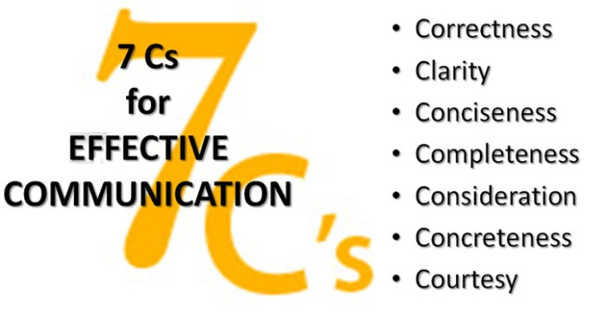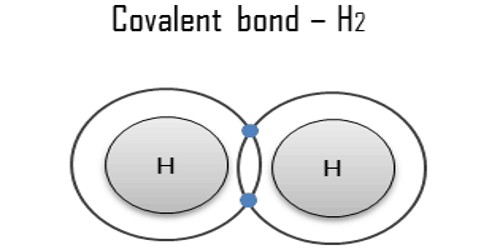Communication is essential in both business and personal interactions because it allows us to exchange information, understand one another’s points of view, and plan and carry out our activities. The 7Cs of Communication is a useful tool for ensuring high-quality communications, both written and verbal. It is a frequently quoted and referenced concept in business communication, and several variations of the 7Cs lists have been developed and modified over time.
The seven C’s of communication are a set of principles that should be followed in all of your communications. Their purpose is to ensure that the person with whom you are communicating understands what you are saying.
Seven C’s in communication are as follows:
- Credibility
- Context
- Clarity
- Channels
- Consistency
- Capability
- Conciseness
(1) Credibility: Both the sender and the receiver must have faith in one another. Communication can be strengthened through credibility; otherwise, the goal of communication will be lost. The message should also take into account the intended recipient and their worldview. You must ensure that the message contains all of the information that the audience requires to understand what is being communicated.
(2) Context: The context of the message to be communicated should be complete and relevant. This will result in proper interaction. Rather than being vague or general, the message is specific and clear. Make certain that the message is not misunderstood.
(3) Clarity: Be clear about your goal or message when writing or speaking to someone. A suitable message should be transmitted, that is, it should be clear and free of distortion and noise. Confusion and misunderstanding will result from a lack of clarity. People shouldn’t have to “read between the lines” or make assumptions to figure out what you’re trying to say.
(4) Channels: Any message should be communicated through the appropriate channel. The channel should be chosen based on the nature and type of communication. Communication will be more effective if the proper channel is used.
(5) Consistency: It is important to avoid inconsistency between verbal and nonverbal communication. With ideas and thoughts, consistency should be maintained. Furthermore, the message should be consistent with the receiver’s time and environment.
(6) Capability: Before sending any message, the sender should assume the receiver’s knowledge, thoughts, and attitude to ensure that the correct message is sent to the correct person.
(7) Conciseness: Communicators should think about relevant facts, proper message organization, and no repetition. Descriptive or lengthy topics should be avoided because they take up too much time. To ensure that your communications are coherent, maintain a logical flow and keep your style, tone, and language consistent throughout.
Other factors that have a large impact on communication are the seven Cs. It also has a significant impact on the effectiveness of communication. Finally, we can say that if anyone or any organization wants to communicate effectively, they should consider the factors listed above that influence communication.















